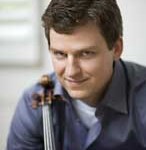With most of Seattle’s classical scene done with or about to close out their seasons, things are about to get even busier as we move into our summer activities. It is even harder to choose what to hear and what to do when concerts and workshops operate cheek-by-jowl and overlap. In fact, it is almost (but never quite) too much of a good thing.
Two annual activities are back again, though one is facing some challenges – more on that later. First, though, the Seattle Chamber Music Festival returns f or its 30th season, and its first under the artistic direction of the great Canadian violinist James Ehnes, replacing the founder, Toby Saks, who stepped down last year. This festival consistently provides some of the best chamber music performances anywhere in the world. Returning this year will be faces familiar to festival-goers, such as violinists Augustin Hadelich, Amy Schwartz Moretti and Stefan Jackiw, violists David Harding and Richard O’Neill, cellists Edward Arron and Robert deMaine, and pianists Jeremy Denk and Jon Kimura Parker. Also, some new participants will be there, including the Seattle Symphony’s new principal cello, Efe Baltacigil, and the rising young violinist Benjamin Beilman.
or its 30th season, and its first under the artistic direction of the great Canadian violinist James Ehnes, replacing the founder, Toby Saks, who stepped down last year. This festival consistently provides some of the best chamber music performances anywhere in the world. Returning this year will be faces familiar to festival-goers, such as violinists Augustin Hadelich, Amy Schwartz Moretti and Stefan Jackiw, violists David Harding and Richard O’Neill, cellists Edward Arron and Robert deMaine, and pianists Jeremy Denk and Jon Kimura Parker. Also, some new participants will be there, including the Seattle Symphony’s new principal cello, Efe Baltacigil, and the rising young violinist Benjamin Beilman.
The Seattle Chamber Music Festival presents three different concerts each week through the month of July, plus some additional special concerts. Performances are at the Nordstrom Recital Hall at Benaroya Hall, and tickets go fast, so plan ahead. For a complete listing of concerts and artists, and to order tickets, visit the Seattle Chamber Music Society Web site at: http://www.seattlechambermusic.org/
The other returning event is the Northwest Mahler Festival, which however is facing some changing circumstances. This festival was founded to give musicians, conductors and audiences an opportunity to experience some of the music that is performed less often because it requires very large orchestras. These big works, such as symphonies by Mahler, Bruckner, and others, are economically prohibitive for professional orchestras to perform very often. The NW Mahler Festival overcame this by soliciting performers and conductors to not only donate their time but to contribute financially.
The format for the festival has been to host a series of repertoire reading sessions with a variety of guest conductors, and then to schedule a week of intensive rehearsals leading up to a performance featuring a Mahler symphony. Unfortunately, this year the festival had had to limit itself to reading sessions and fund-raising activities, and to forgo a concert. Hopefully, this will be a temporary situation and the festival will return full force next summer. In the meantime if you would like to contribute or participate in the reading sessions, check out their site at: http://www.nwmahlerfestival.org/
